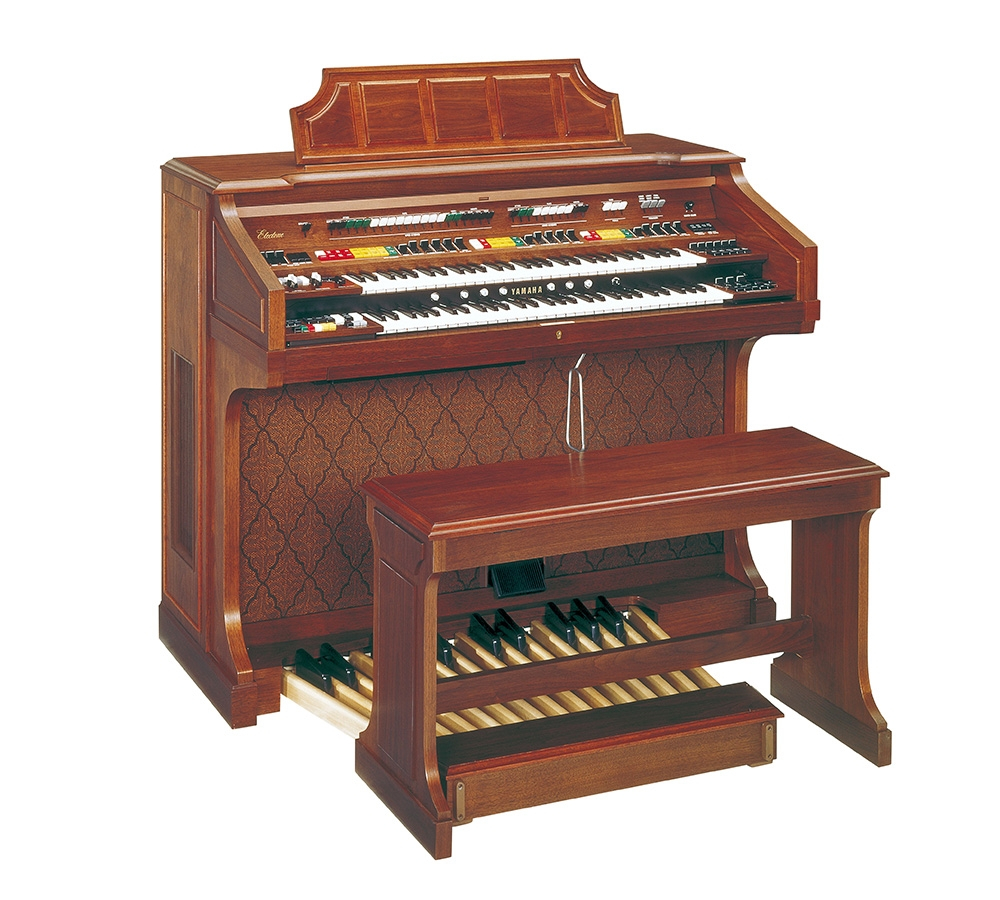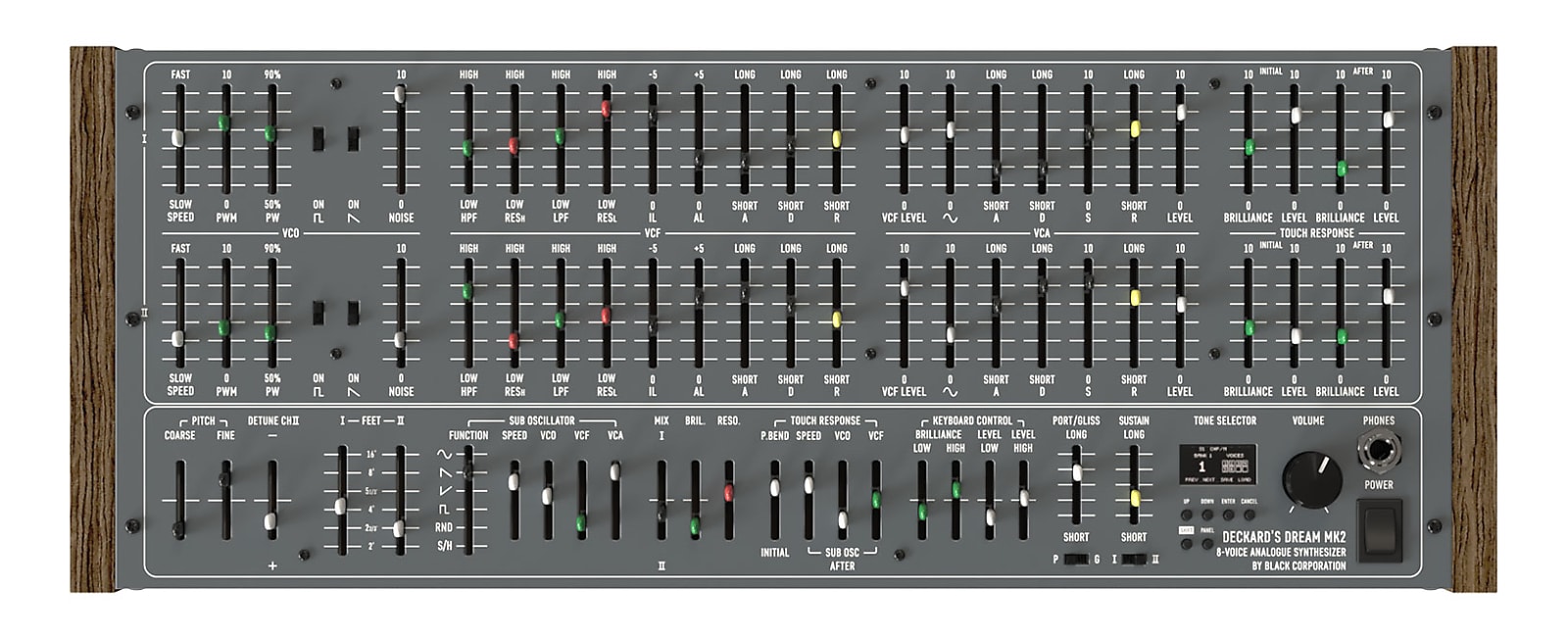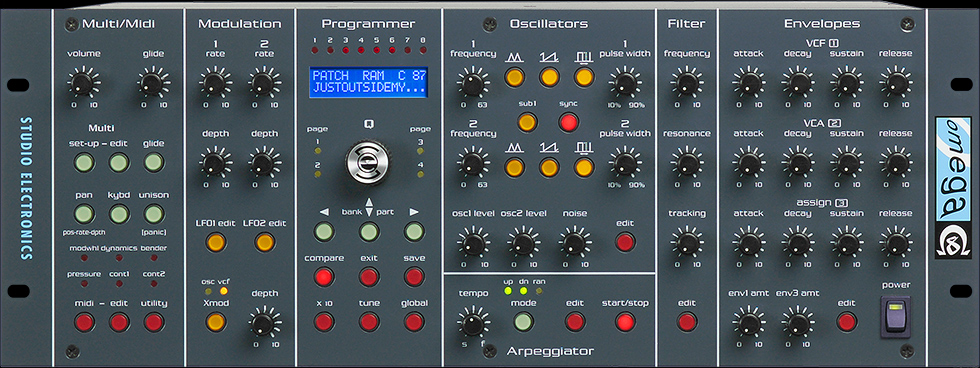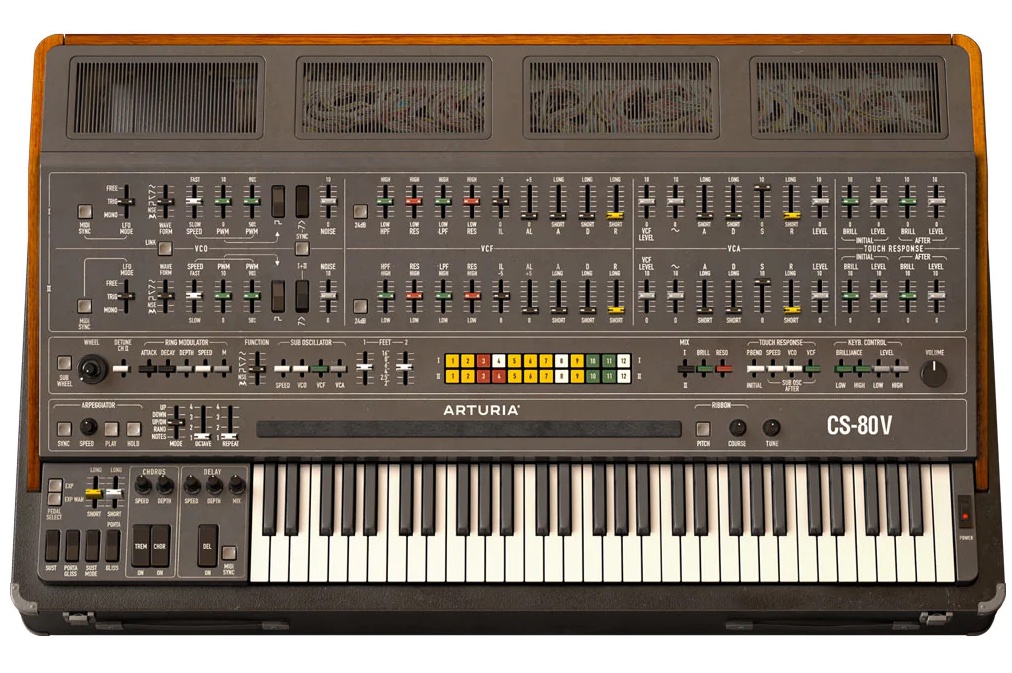In 1977, Yamaha released the CS-80, the top of the line of the CS series and a landmark in synthesizer history. Featuring eight voices and two complete synth layers with independent controls—plus additional parameters like ring modulation—it has a rich and full sound that is often considered one of the pinnacles of analog polyphonic synthesizers.
It was more than just a nice-sounding synth though: one reason why performers like Vangelis took to it so strongly is the level of expression it offered. With polyphonic aftertouch and a responsive ribbon controller, it allowed for performance and playing that was more like an acoustic instrument than an electronic one. Just listen to his soundtrack for the film Blade Runner to hear it in full flight.
All this power and performance makes the CS-80 one of the most expensive vintage synthesizers on the market, with units regularly trading hands for amounts that could get you a decent new car. It also ensures that there have yet to be any clones or inspired instruments that get it 100% right. Even if the sound comes close, the performative aspects will be lacking—if you’re looking for a one-to-one remake, you just won’t find one. However, there are a number of instruments out there that may get you close.
The CS Siblings

The best place to start a search for a CS-80 alternative is within Yamaha’s CS series itself. The same year of the CS-80’s release, Yamaha put out two lesser-powered synths cut from the same cloth, the CS-50 and CS-60. The CS-50 is a single oscillator, four-voice polyphonic synth with channel aftertouch. With prices around $10,000, it’s certainly not cheap, but it will get you some of the same CS mojo. Moving up, the CS-60 will give you eight voices of a single synthesizer channel and throw in ring modulation too. They sell for not much more than a CS-50, so if you budget allows, this is the one to go for.
Yamaha released a number of other, excellent synthesizers in the CS series, from the diminutive CS01 all the way up to the CS-70M, a massive poly. None of them particularly sound like a CS-80, so if you’re thinking about any of these, it’s best to consider them for their own merits rather than their closeness to a CS-80.
A latter day CS synth you may want to try is the reface CS. Not analog but virtual analog, this one takes inspiration from the OG CS line and adds modern VA touches more in line with the company’s underrated AN1X from 1997. Again, it’s no CS-80 (how could it be at this size?) but it’s still a lot of fun.
The Organ Alternative

By the dawn of the 1970s, Yamaha had made a number of advancements in organ technology. Its first synthesizer, the SY-1 in 1974, was actually a by-product of the GX-707 Electone, a polyphonic analog synthesizer in organ’s clothing. In a similar way, the CS series developed out of 1975’s GX-1, a massive (and massively expensive) concert-model Electone with a polyphonic synthesizer section.
For those interested in this side of Yamaha’s instruments, the E-70 represents an intriguing option. Released in 1977, it features a synthesizer portion with CS filters and VCAs. However, the oscillators are not analog but digital. Called PASS, or Pulse Analog Synthesis System, it featured single-cycle samples of analog waveforms. While essentially a preset organ, there are mods that can transform it into an instrument with two polyphonic and one monophonic synthesizers. While it’s not a CS-80, it is pretty cool.
The Replicant

Outside of an original CS synth, the closest CS-80 option is without a doubt Deckard’s Dream by Black Corporation. Now also available in a MK2 iteration, the synth combines CS-80-style sound with MPE (MIDI Polyphonic Expression) aftertouch, creating an instrument that both sounds and performs pretty close to the original. As with Yamaha’s synth, it has eight voices and two layers but adds resonance to the highpass filter as well as digital patch memory, far more convenient than the CS-80’s limited flip switch memory system.
For the full CS-80 experience though, you’ll need an MPE-equipped keyboard, as Deckard’s Dream is keyless. There’s also no effects section, meaning for ring modulation, tremolo and chorus circuit, you’ll want to keep an eye out for the Deckard’s Dream Expander.
Finally, Eurorack users will want to look into Deckard’s Voice, a single synth layer in a module, plus Rachael, a companion module with ring mod, ADSR envelope and reference oscillator.
Studio Electronics

Long-running American analog synthesizer specialists Studio Electronics don’t have a CS-80 copy in their stable but what they do have is a reverse-engineered version of the CS-80 filter. This is available as an add-on for their Omega-8 and CODE eight-voice rackmount synthesizers. You would never confuse their sound for a CS-80 but it is warm and lovely. You can also get the filter in the company’s monophonic Boomstar desktop synth.
CS-80 Software Solutions

For most of us, software will be the closest we’ll ever come to owning a CS-80. Thankfully, there are a few emulations on the market that sound convincing and—thanks to the conveniences that software can offer—come with extras not present on the original machine.
Arturia’s CS-80 V is the tried-and-true soft synth version, with the full synth recreated virtually. As expression is just as important as the sound when it comes to the CS-80, Arturia now offers MPE compatibility in its version. Pair it with an MPE-enabled controller like a Roli Seaboard for the full experience.
Cherry Audio have been going gangbusters lately, releasing recreation after recreation of classic synths. They’ve recently done the CS-80 as the GX-80, which features elements from its predecessor instrument, GX-1, thrown in for good measure. While it doesn’t have MPE, it does have polyphonic aftertouch as well as a way to simulate polyphonic aftertouch with a monophonic aftertouch controller.
Lastly, PC users will want to check out the well-received and low-cost MemoryMoon ME80, a long-running favorite of many in-the-box musicians looking for CS flavor.
